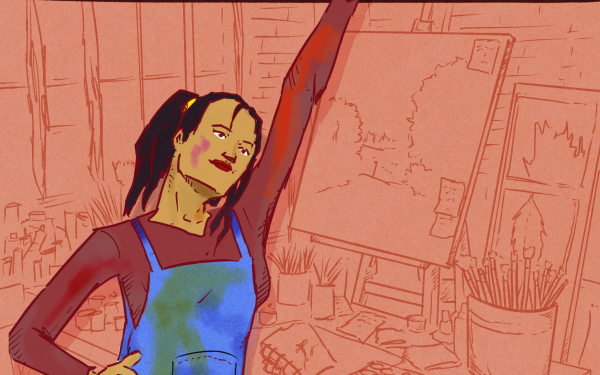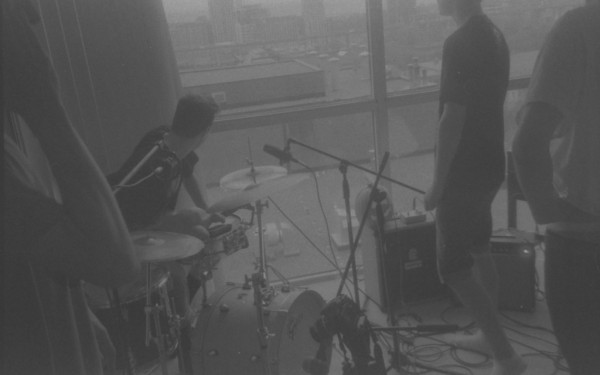The Legendary Oliver Jones
The Humble Roots of a Jazz Icon
When ranking the best of the best in jazz music history, child prodigy and Little Burgundy native Oliver Jones is definitely a contender.
This article has been updated.
Recently, Jones officially decided to put an end to his wonderful 77-year career.
Staying true to his humble beginnings, the 82 year-old world-renowned jazz musician lives a modest life in the southwest borough of Montreal—still doing his own groceries and striking up conversations with his neighbours.
Jones began playing the piano when he was three years old. He remembers his two sisters telling him how he would recreate jingles or songs he heard on the radio as a child.
“I can’t remember when I haven’t played the piano,” Jones said over the phone.
The music scene was where he felt the most comfortable. By the age of five, Jones started playing the piano at the United Union Church in Little Burgundy. The church was a crucial part of his life—it was the first place he played the piano in front of an audience.
Jones later moved 15 doors down from jazz legend Oscar Peterson’s family, making it easier for him to take piano lessons with Peterson’s older sister, Daisy. He admitted he wasn’t very focused on music at that age.
“I had my sports—baseball and hockey.”
At nine years old, Jones’ idol was Jackie Robinson, the first black Major League Baseball player. That same year, however, Oscar Peterson’s success was growing and Jones wanted to follow in his footsteps. “I’ll always remember [Daisy] telling me that it takes a lot of hard work and discipline.”
At the time, jazz was only beginning to grow in the music industry, so Jones’ parents had a hard time getting on board. They were only interested in Jones studying classical piano and hymns from their church.
As a teenager, Jones played in hotels and clubs around Montreal. At the age of 18 he moved to Valleyfield where he played with other musicians for seven years. He then moved to Miami, Florida with Jamaican Calypso singer Kenny Hamilton. Jones became Hamilton’s musical director for 19 years, but maintained his career and still played at venues in Miami.
“From that job we had the opportunity to go to Puerto Rico. That was supposed to be four months and we ended up staying 16 years, […] it was just a different world,” Jones said.
In 1980, Jones exploded onto the jazz scene. He played up to 150 shows a year at clubs, hotels and festivals all over the word. Jones said of all the places he’d travelled, New Zealand was his favourite because—for the first time in his life—he got to play a full set of jazz in front of a large audience.
Throughout his career Jones had the opportunity to share the stage with some of jazz’s greatest musicians, including Ella Fitzgerald and Hank Jones. He continued to play in Montreal at his old friend Charlie Biddle’s club, who was an accomplished jazz bassist.
In 2004, four years after he originally announced his retirement, the Festival de Jazz de Montreal asked Jones to come back for one more show. Jones said the festival had done so much for him and his career—it was the least he could do.
“Remember where you came from and remember there’s always someone better than you and you can always learn.”
During that concert he finally had the opportunity to play with his lifelong idol and mentor, Oscar Peterson. This concert, he said, was without a doubt the highlight of his career. He was very proud of how happy Peterson was to play with him.
The day after the concert, Jones received multiple phone calls from festivals across Canada. He hadn’t planned on coming out of retirement but Jones’ wife suggested he do a couple more shows to satisfy the audience.
“Before I knew it, I was back on the road again,” he said.
Jones ended up doing 84 concerts that year. Last year, he played concerts from Vancouver all the way to Halifax. “I wanted to say goodbye and thank everyone,” he explained.
Throughout his career, Jones won two Junos and nine Félix Awards. Over a span of 20 years he released 15 albums with the Justin Time Records label. On some albums he played as a solo pianist, on others he played alongside other musicians as a trio.
“I accomplished more than I ever thought I could,” he said.
Two years ago Jones underwent open-heart surgery. The experience made him realize it was time to stop performing and settle down.
“I decided it was time to retire, sit back and enjoy the fruits of my labor,” he said.
And he’s very grateful for all the memories. “If I didn’t have music, I don’t know what I would have done,” he said.
Jones now watches from the sidelines, but couldn’t be prouder of the young talent in Montreal. He said there are so many talented people across Canada, but unfortunately too many give up on music.
In the future, Jones plans to visit schools and encourage young people to pursue careers in music. He wants to inspire students and give them someone to look up to. He also hopes to give confidence to shy youngsters, just like he was as a kid.
Jones still regularly goes to the Union United Church where it all started.
“Remember where you came from and remember there’s always someone better than you and you can always learn,” he said.
For his legacy, he wants musicians to take pride in what they’re doing.
“When you remember old man Oliver Jones, remember I tried my best and was very fortunate to have a tremendous audience.”
Correction: A previous iteration of this article miscounted the number of awards Jones had won. The Link regrets this error.

2_900_1350_90.jpg)




